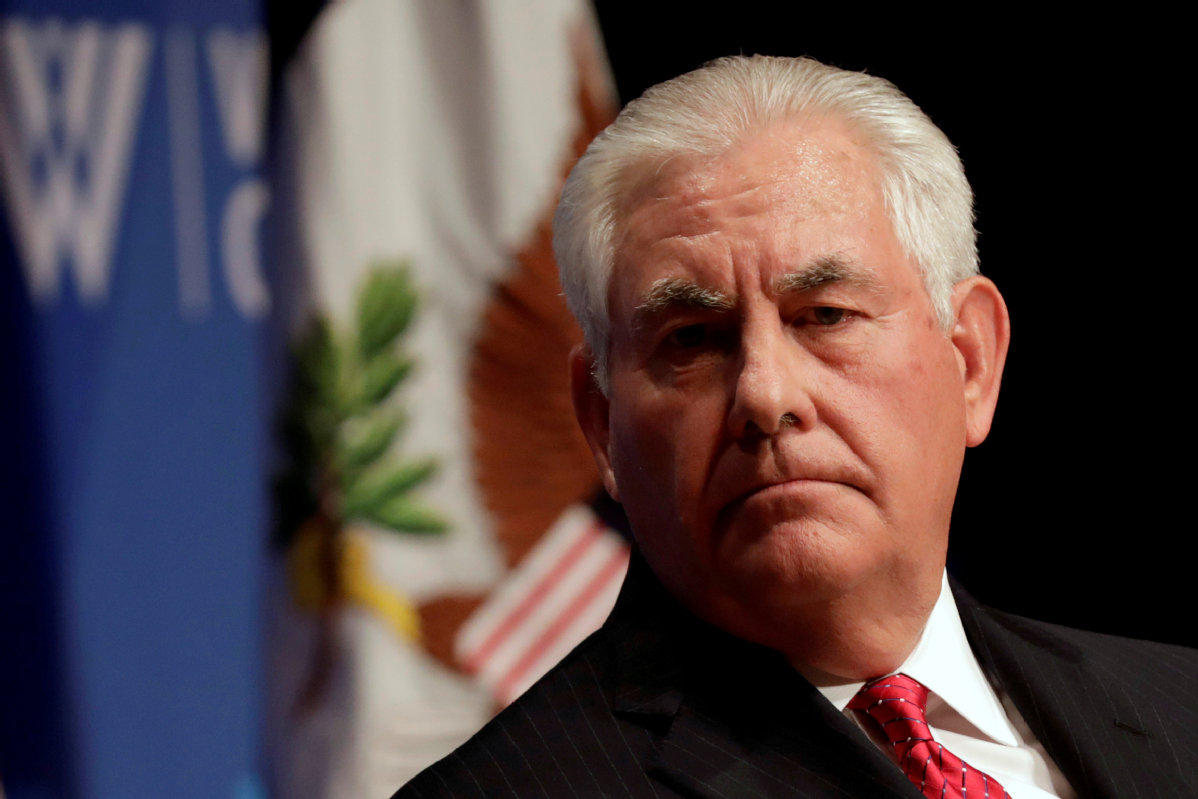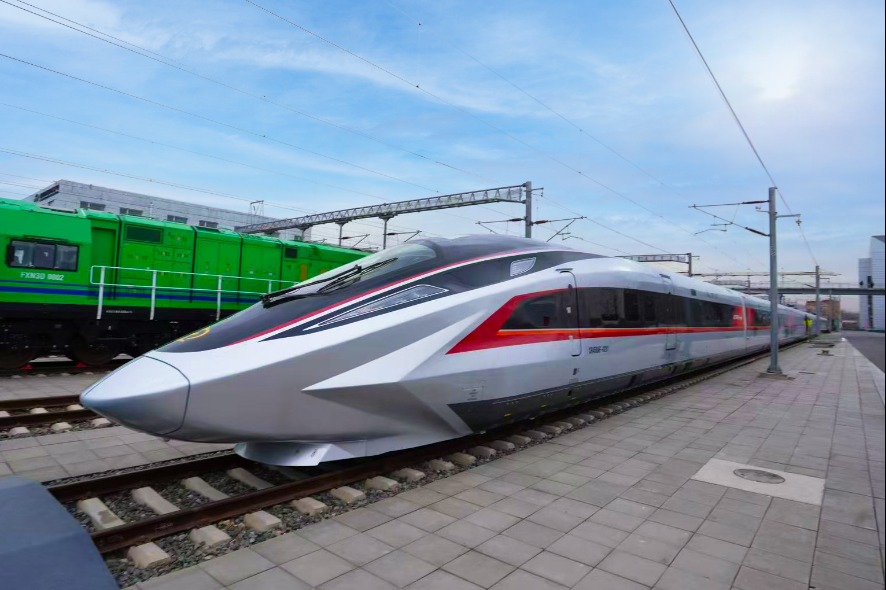Using Africa as a ploy to attack China futile


US Secretary of State Rex Tillerson's 27-minute speech at George Mason University, Virginia, on Tuesday before he embarked on a five-nation tour of Africa would have been fine had he cut it a bit short. Instead, he chose to accuse China of encouraging dependency using opaque contracts, predatory loan practices and corrupt deals to mire African countries in debt, undercut their sovereignty, deny them their long-term and self-sustaining growth.
Tillerson had also accused China of being a colonial power before his visit to Latin America a month ago only to be countered by Peruvian Trade and Tourism Minister Eduardo Ferreyros, who praised China as a good trade partner.
The same is true in Africa. After Tillerson landed in the Ethiopian capital of Addis Ababa on Wednesday on the first leg of his Africa trip, he must have been surprised to see a sparkling light rail built by China Railway Group that has been operating since 2015, the year I visited and covered the African countries with huge economic potential. He should also have been struck by a 759-kilometer modern railway linking Addis Ababa with neighboring Djibouti, which started commercial operations on Jan 1 this year. More than 95 percent of the trade of landlocked Ethiopia passes through Djibouti.
When Tillerson said the United States sees a bright future in Africa, I thought he meant China, not only because I wrote that China views Africa with optimism, but also because BBC reported on Tuesday that Chinese construction companies have made significant improvements to long-neglected infrastructure in a number of countries.
China believes Ethiopia and many other African countries have the potential to repeat China's economic miracle while avoiding the mistakes it has committed in the past four decades.
One wonders whether Tillerson toured the Eastern Industrial Zone in Dukem just outside Addis Ababa, for there he would have seen how Chinese companies are contributing to industrial modernization, training workers and creating tens of thousands of jobs, invalidating all his accusations against China.
David Dollar, a US Treasury emissary in Beijing during the Barack Obama administration and a former World Bank country director for China, has done extensive research on China in both Africa and Latin America. Asked about the accusations labeled against China by Tillerson recently and Hillary Clinton a few years ago, Dollar denounced them as "nonsense", saying it is hard to back them up with evidence and they were humiliating to African and Latin American countries.
Douglas Paal, director of the Asia program at Carnegie Endowment for International Peace, has just returned from a fact-finding trip to Africa. In a talk at the Brookings Institution on Wednesday, he praised China's economic activities on the continent, saying the African countries welcomed them. Paal, a China expert who served in the George H.W. Bush administration, termed Tillerson's speech on Tuesday as "terrible", "an impoverished speech conceptually and counterproductive tactically" that sets the "American policy in the wrong direction".
Tillerson's speech may have been aimed at distracting African countries from the offensive comment of US President Donald Trump against them in January, or Tillerson's deeds as chief executive of Exxon Mobil to push for deals in African countries that were widely denounced for being mired in corruption and ignoring human rights. African oil exports account for some 90 percent of US-Africa trade.
Whatever the motive, Tillerson's ploy is unlikely to succeed because of China's cooperative and positive activities in Africa. Of course, Africa would benefit much more if the US, instead of criticizing China, joined hands with China to tap the huge growth potential of the continent.
Contact with the writer at [email protected].

































